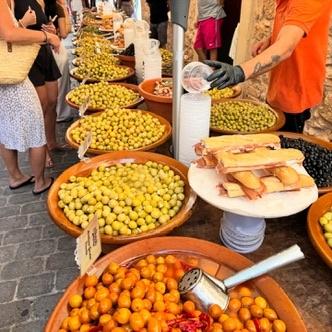How does hand-picking olives help maintain the quality and aroma of Mallorcan olive oil?
Similar Topics
hand-picking olives
mallorcan olive oil
olive quality preservation
traditional harvesting
delicate aroma
avoid olive bruising
reduce oxidation
prompt pressing
Hand-picking olives is a traditional method widely practiced in Mallorca and plays a crucial role in preserving the quality and delicate aroma of Mallorcan olive oil. Unlike mechanical harvesting, hand-picking allows workers to carefully select only the ripest, healthiest olives, ensuring that the fruit is not bruised or damaged during collection. This meticulous attention to the harvesting process helps maintain the integrity of the olives, which is essential for producing oil with a clean, fresh taste and robust fragrance.
In addition to selecting the best fruit, hand-picking minimizes exposure to harsh mechanical forces that can accelerate oxidation and fermentation. When olives are handled gently, their natural enzymes remain intact, supporting the development of the oil’s distinctive aromatic profile. Furthermore, the reduced risk of crushing olives during picking prevents early release of oils that might quickly degrade or become bitter, ultimately leading to a fresher and more balanced final product.
The care involved in manual harvesting also enables a prompt transfer of the olives to pressing facilities, often within hours, which is vital for maintaining the oil’s quality. The shorter the time between picking and processing, the less likely the olives are to ferment or lose their aromatic compounds, ensuring that the essence of the Mallorcan landscape is captured in every bottle. This traditional approach not only supports the island’s cultural heritage but also guarantees that the premium Mallorcan olive oil retains its unique taste and aroma, prized by chefs and connoisseurs alike.
In addition to selecting the best fruit, hand-picking minimizes exposure to harsh mechanical forces that can accelerate oxidation and fermentation. When olives are handled gently, their natural enzymes remain intact, supporting the development of the oil’s distinctive aromatic profile. Furthermore, the reduced risk of crushing olives during picking prevents early release of oils that might quickly degrade or become bitter, ultimately leading to a fresher and more balanced final product.
The care involved in manual harvesting also enables a prompt transfer of the olives to pressing facilities, often within hours, which is vital for maintaining the oil’s quality. The shorter the time between picking and processing, the less likely the olives are to ferment or lose their aromatic compounds, ensuring that the essence of the Mallorcan landscape is captured in every bottle. This traditional approach not only supports the island’s cultural heritage but also guarantees that the premium Mallorcan olive oil retains its unique taste and aroma, prized by chefs and connoisseurs alike.
🧩 Related Questions
Related Question
How did Mallorca's windmills function as social and community hubs in rural areas?
Related Question
How do the flavors of Mallorcan sausages differ from other Spanish or Mediterranean sausages?
Related Question
In what ways are local authorities in Mallorca addressing water scarcity for visitors and residents?
